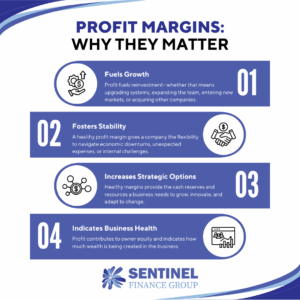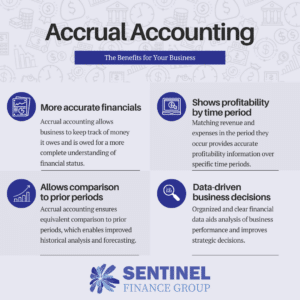As companies grow and evolve, so do their financial needs. For many businesses, a pivotal moment comes when the leadership team realizes they need better insight into the company’s financial picture—but aren’t sure how to get it. Perhaps internal reports don’t provide the clarity they need, or the finance team lacks strategic guidance. In some cases, funding may have been secured and now demands credible reporting, professional oversight, and an experienced financial voice at the table.
That’s when many companies start asking the question: Should we hire a full-time CFO or a fractional CFO?
What Does a CFO Do?
A Chief Financial Officer (CFO) provides more than just accounting oversight. CFOs bring strategic leadership to financial planning, budgeting, capital structure, and business performance. They serve as a trusted advisor to the CEO and leadership team, helping guide decision-making and drive long-term value.
Whether full-time or fractional, a CFO is responsible for:
- Financial strategy and forecasting
- Cash flow and liquidity management
- Fundraising and investor communications
- KPI tracking and financial reporting
- Risk management and compliance
- Finance team leadership and development
The Case for a Fractional CFO
A fractional CFO has many advantages over a full-time CFO:
1. Cost-Effective Expertise
Hiring a full-time CFO is a major investment—typically starting at $200,000 annually, not including benefits. For large corporations with complex operations and a robust financial department, this might make sense. But for many growing companies, the workload doesn’t justify a 40-hour-per-week executive.
That’s where a fractional CFO becomes a smart, scalable alternative. Engaging a CFO for 10 hours a week, for example, gives your company access to the same level of expertise—but at a fraction of the cost. You still benefit from regular financial reporting, strategic input, and participation in board or investor meetings, without the overhead of a full-time hire.
2. Flexibility and Reduced Commitment
Hiring a full-time CFO is not only costly—it also requires a long-term commitment. Onboarding, training, and integrating someone into your team takes time and resources. If the fit isn’t right, those sunk costs can make it difficult to pivot.
By contrast, working with a fractional CFO on a contract basis provides flexibility. If the relationship doesn’t deliver value, it’s much easier to make a change. This lower-risk structure allows companies to test what level of financial leadership they need without the pressure of a permanent hire.
3. Lower Risk of Knowledge Loss
Another overlooked advantage of a fractional CFO is how they help institutionalize financial knowledge. Because they often work across multiple clients, fractional CFOs tend to bring structured processes, clear documentation, and standardized reporting. This makes it easier to transition if leadership changes occur.
Full-time employees, by contrast, often carry a significant amount of company-specific knowledge in their heads. When they leave—especially without adequate documentation—there’s a risk of losing critical financial history and operational know-how. Businesses can spend months recovering from this kind of disruption.
When Is the Right Time to Hire a CFO?
You don’t need to wait until you’re a $50M company to benefit from CFO-level insight. In fact, I often recommend that companies engage a CFO as early as possible—sometimes even as early as $100,000 in annual revenue. With a fractional CFO, even a few hours per month can deliver meaningful impact by improving financial structure, strategic planning, and decision-making.
Generally speaking:
- Hire a fractional CFO if your company needs strategic financial oversight but doesn’t require daily CFO attention. This is common for businesses under $50M in annual revenue.
- Hire a full-time CFO if you need dedicated support, daily involvement, and deep integration with your operations—often seen in companies closer to the $50M–$100M range or beyond.
Long-Term Impact
Whether fractional or full-time, a CFO brings more than just accounting knowledge. They offer insight, accountability, market experience, and forward-thinking leadership that helps your company run more efficiently and prepare for what’s next.
Investing in the right financial leadership—at the right time—can drive better decisions, build credibility with investors, and ultimately pave the way for sustainable growth.
Need help determining which CFO solution is right for your company?
At Sentinel Finance Group, we specialize in providing strategic fractional CFO services tailored to the needs of growing businesses. Let’s talk about how we can help you bring clarity, structure, and confidence to your financial operations.
Sentinel Finance Group is a fractional CFO firm in Kansas City and provides CFO services and controller services to local businesses.




